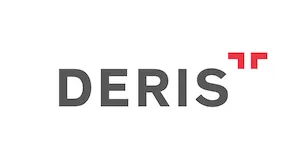Fundamental Changes for Intellectual Property Law in Türkiye
Türkiye has updated its e-commerce regulations in line with mainly European Union 's Digital Markets Act and the Digital Services Act with the publication of the new amendments introduced to the "Law on the Regulation of Electronic Commerce No. 6563" ("E-Commerce Law") on July 1, 2022. Amendments introduced to the E-commerce Law have brought significant obligations to e-commerce service providers ("SP") and e-commerce intermediate service providers ("ISP"), especially in terms of intellectual property rights ("IPR") which became particularly effective as of January 01, 2023.
As of December 29, 2022, a new secondary legislation has also been introduced and published as Regulation Regarding the Electronic Commerce Intermediary Service Provider and Electronic Commerce Service Providers ("Regulation") for prescribing additional details in relation to obligations and rules set out under the E-Commerce Law.
In the fourth section of the Regulation, specifically the complaint application with respect to the violation of IPR has been regulated in detail.
Complaint Applications Regarding the IPR Infringement in E-Commerce Platforms:
- ISPs will be obliged to remove the infringing contents upon the complaints of the right holders or their representatives with respect to the IPR infringement if the requirements are met and will notify on the removal both the right holder complainant/representative and the respective SP.
- The complaints can be submitted to ISPs via internal communication system, notary public or registered e-mail address ("KEP").
- According to the "internal communication system"; it refers to the system created to provide easy and free communication between ISPs and SPs with respect to the e-marketplaces.
- The right holders or their representatives can submit complaints to ISPs with;
- their contact information (name, surname/ trade name, T.C. identification number, address information, e-mail address and KEP, power of attorney for the representatives)
- the reason of complaints,
- evidence regarding the alleged violations,
- internet address that indicates the product subject to the complaint,
- the prove of the right ownership (the registration certificates issued by the Turkish Patent and Trademark Office or the banderole form issued by the Ministry of Culture and Tourism or activity certificate in terms of professional associations within the scope of the Law on Intellectual and Artistic Works 5846)
- a statement given by the complainant that they are responsible for the damages that may arise if the information and documents submitted within the scope of the complaint application are groundless.
Examination of Complaints:
- ISPs will examine the complaints and notify the complainant right holders or their representatives if there are missing and required information and/or documents. There is no specific time limit to complete the missing and required information and/or documents by the complainant.
- Eventually ISP will process the complaint and remove the content within maximum 48 hours, and subsequently notify the respective SP in relation to said actions. SPs are entitled to object against ISPs' removal decision.
- The ISPs will not evaluate the further complaints submitted by the third-party right holder with respect to the same infringing content unless the right holder submits a new document which prove the right ownership.
Objection Procedures:
- Objection against the complaints regarding the violation of IPR, by SPs, whose product/content is removed from publication will be made to ISPs just as in the complaint.
- SP should prove the removed content/product does not infringe the IPR of the complainant in the objection.
- The genuine nature of the removed product should be proved through invoices or alternative documents, or contracts showing that the right holder or the persons who put the product on the market give the related authorization to the SP considering the "principle of exhaustion".
- The SP also must give a declaration of responsibility for the possible damages in parallel with complaint procedures.
- If there are missing and required information and/or documents, the objection will not be examined, and the ISP will notify the SP.
- There is no specific deadline to file the object by the SP but after the submission of the objection, if it is clearly understood that the objection is justified, ISP is obliged to republish the content within 24 hours from the receipt of the objection has been introduced.
The parties are always entitled to pursue the legal routes against the above-mentioned infringement allegations and its results.
Conclusion:
It is seen that this amendment brings the obligation to use the notify & remove mechanism in terms of IPR violations without any doubt.
In practice, the most discussed part of the amendments is the regulation tool gives ISPs a right to decide about the IPR infringement and they will act like a judge in terms of violation allegations. Some believes that IPR infringement claims should be subject to court actions and not be subject to a simple evaluation system which will be carried out by ISPs.
However, we are of the opinion that this regulation has a very comprehensive and intricate structure in terms of formulation thereof and the marketplaces will play an active role in the fight against IPR infringement although there are some uncertain aspects of the new implementation.
Considering the limitless counterfeiting potential in digital world, in this way, the workload of courts is expected to be decreased.
For more information please visit our Linkedin page - Deris Intellectual Property
The content of this article is intended to provide a general guide to the subject matter. Specialist advice should be sought about your specific circumstances.


